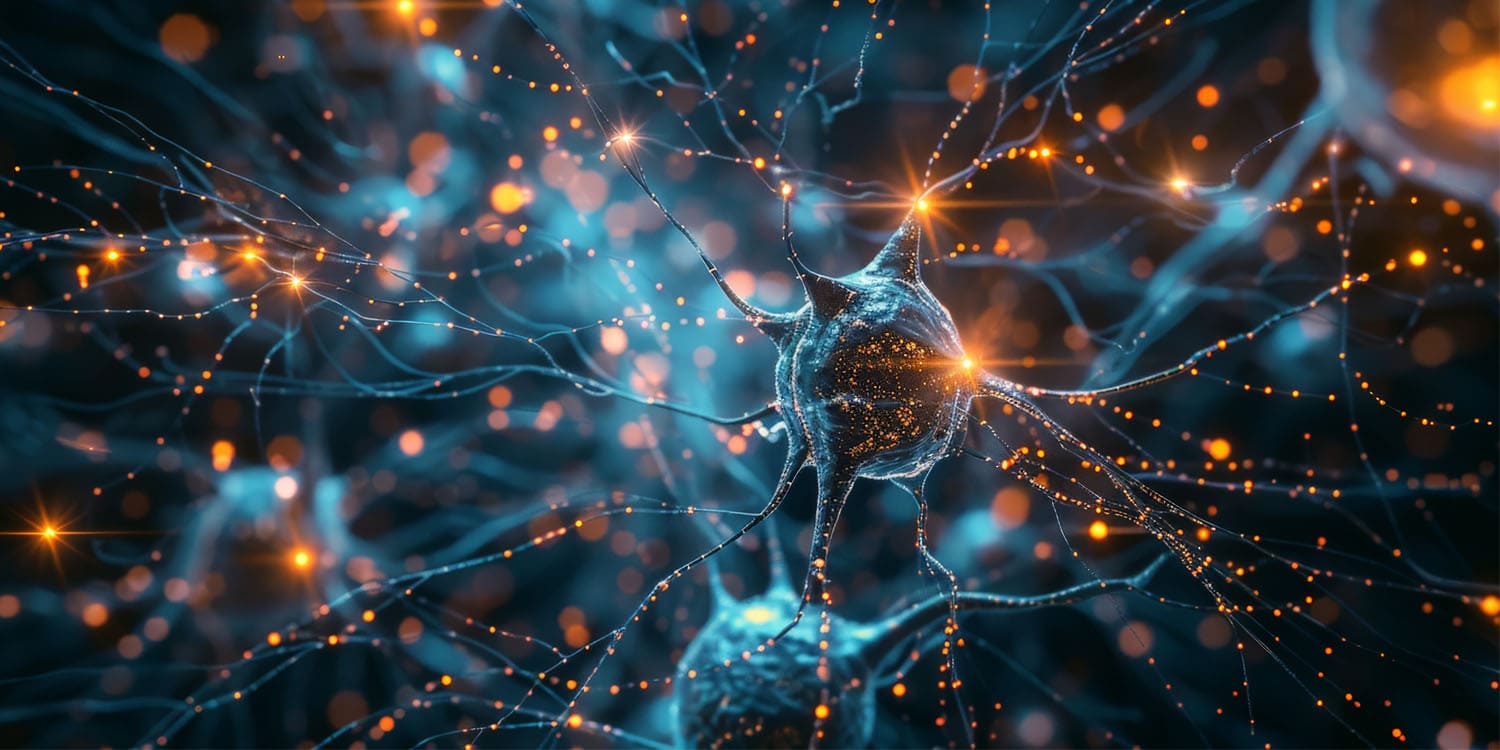A new study underscores the heightened importance of sleep during early brain development, finding that sleep deprivation impacts young mice far more severely than adults. Published in the Proceedings of the National Academy of Sciences, the research discovered that sleep supports the formation of brain connections essential for learning and memory in young mice. The results offer a window into why children may be more sensitive to sleep loss and how it could influence their cognitive development over time.
“Why we sleep is a long-standing and unanswered question. Sleep is increasingly understood as a fundamental pillar of health,” said study author Graham Diering, an assistant professor at the University of North Carolina at Chapel Hill. “In this study, we asked whether sleep may perform unique functions during brain development, distinct from adulthood. In other words, is the reason why babies and children need sleep different from why adults need sleep? The companion question then becomes, is losing sleep more detrimental to health during development, and do adults become resilient?”
“We were especially motivated to study this question because children with neurodevelopmental disorders, including autism spectrum disorder (ASD), show very high rates of sleep disruption compared to typically developing peers. Understanding the vulnerabilities associated with sleep disruption during development could lead to new understanding and treatment opportunities for ASD and other neurodevelopmental disorders.”
“This current study was also heavily motivated by an earlier study from our lab where we showed that a period of chronic early-life sleep disruption interacted with underlying genetic vulnerability to cause long-lasting (permanent) effects on adult social behavior in mice,” Diering continued. “In other words, sleep disruption during a sensitive period of development is causal of ASD-relevant phenotypes when combined with genetic risk.”
To investigate, the scientists examined the molecular and behavioral effects of sleep deprivation on three groups of mice: juvenile (21–28 days old), adolescent (42–49 days old), and adult (70–100 days old). The sleep-wake behavior of each mouse was monitored with a non-invasive piezoelectric system that detects breathing and movement patterns, allowing researchers to accurately record when each mouse was awake or asleep.
After establishing a baseline sleep pattern, the mice were deprived of sleep and observed during the recovery phase to see how much sleep was regained, examining whether different age groups compensated for lost sleep differently.
The researchers measured a range of indicators to understand the impact of sleep deprivation. Behaviorally, they used a novel object recognition task to assess cognitive performance by measuring how long each mouse spent exploring a familiar versus a new object. On a molecular level, they studied brain tissue from the forebrain region to examine proteins associated with synaptic plasticity and growth, as well as specific genetic activity linked to brain development and stress responses.
The results showed striking differences between younger and older mice in both behavior and brain chemistry. In young mice, sleep deprivation had profound effects, leading to cognitive deficits and impairments in memory performance. In behavioral tests, juvenile mice exposed to sleep deprivation struggled significantly with tasks requiring memory and learning, while adults largely retained their cognitive abilities despite similar sleep loss. This suggests that young brains may be more vulnerable to the cognitive effects of sleep disruption, underscoring the importance of sleep during early development.
“We all intuitively understand that babies and children ‘need their sleep,’” Diering told PsyPost. “We know not to wake the sleeping baby. When we deprived adult mice of sleep for 4 hours, they showed a clear increase in sleep from the normal undisturbed level later that same day. We call this ‘sleep rebound,’ which allows animals to make up for lost sleep. In other words, the adult mice ‘stayed up past bedtime and slept in the next day,’ a very familiar behavior to people.”
“What was quite surprising was when we sleep deprived young mice, they showed no sleep rebound; they never made up the lost sleep, even though we believe they ‘need’ the sleep more than adults. After this result, even though we were looking for different responses to sleep loss in developing versus adult subjects, it was further surprising to find that the developing mice showed a different response to sleep deprivation in every single experiment we conducted. The differences in response to sleep deprivation weren’t just a little bit different between developing and adult subjects; they were fundamentally distinct.”
On a molecular level, the researchers found that sleep deprivation in juvenile mice led to noticeable changes in brain proteins linked to synaptogenesis, the formation and strengthening of connections between neurons. These proteins are essential for building neural networks, which support learning, memory, and other cognitive functions.
In adult mice, however, sleep deprivation did not significantly alter these developmental proteins, suggesting that while adult brains need sleep for maintenance and repair, younger brains require it for ongoing growth and development. This distinct molecular response in juveniles highlights how critical sleep is for the developing brain, where it may facilitate essential processes like synaptic pruning, strengthening, and circuit refinement that form the foundation for lifelong learning.
The study also found that juvenile mice lacked some of the adaptive responses to sleep deprivation that adults exhibited. For instance, in adults, sleep loss triggered an increase in specific stress-related and homeostatic markers like Homer1a, a protein associated with the brain’s need for sleep and recovery. Juveniles, however, showed a weaker or absent response in these adaptive markers, indicating they may not have fully developed the mechanisms to counteract the effects of sleep loss effectively. This inability to adapt makes younger brains not only more sensitive to sleep deprivation but potentially less able to recover from it.
A particularly striking finding was the connection between sleep deprivation in young mice and proteins associated with neurodevelopmental disorders, specifically autism spectrum disorder. Many of the proteins affected by sleep loss in juvenile brains have been linked to genetic risk factors for autism, suggesting that disrupted sleep during critical developmental periods could interact with genetic vulnerabilities. This connection points to a potential mechanism by which early-life sleep deprivation might contribute to developmental challenges, especially in children with preexisting genetic risks.
“Sleep is something that is very important for your whole life, but sleep is especially important for babies and children,” Diering explained. “There is an increasing appreciation that one cannot ‘make up’ for lost sleep. This is especially true during development. Sleep loss can negatively impact brain development. Once development is finished (maturation), we don’t get to go back and do it again.”
While this study offers new insights into the age-specific roles of sleep in brain health, there are some limitations to consider. First, the study was conducted on mice, so while the findings offer a model for understanding brain development, translating these results to humans requires further research. Additionally, the study focused on short-term sleep deprivation; future research could explore how long-term sleep disruption affects brain development.
“We believe our project has important implications for understanding the links between sleep disruption and ASD,” Diering said. “However, in this study we only conducted acute sleep deprivation, a single episode of sleep loss, which is not expected to cause long-lasting effects. Chronic sleep disruption is much more likely to be clinically relevant in human patients.”
“We specifically conducted this acute sleep deprivation to identify what may be the unique vulnerabilities associated with sleep loss during development that could then be further studied in an ASD context. Another caveat is that this study was conducted in mice and not people. However, sleep is conserved across all animal species, and in this study, we believe our findings from mice are relevant to humans.”
Further investigations could also examine how different sleep stages, like rapid eye movement and non-rapid eye movement sleep, play roles in synaptic development across ages. Future research could explore the molecular mechanisms linking sleep deprivation in juveniles to increased risk of neurodevelopmental disorders, potentially uncovering novel treatments or interventions for at-risk children.
“We want to study further how sustained developmental sleep loss interacts with ASD genetic risk to cause lasting changes in behavior,” Diering said. “Which types of genetic risks are associated with greater vulnerability to sleep loss? Do we see important differences between males and females?”
“Longer term, we want to use our molecular analysis to learn more about the basis for sleep’s benefits. How does sleeping actually modify the brain at the molecular level to give the various health and cognitive benefits of quality sleep? With these insights, we can then develop next-generation sleep medicine—treatments that will make sleep work better and not just act as simple sedatives that knock people out. This is especially important for children. If sleep performs unique functions during development, distinct from adulthood, we will need dedicated sleep medicines for use in children. Currently, there are no sleep-based medicines approved for use in children.”
The study, “Developing forebrain synapses are uniquely vulnerable to sleep loss,” was authored by Sean M. Gaya, Elissavet Chartampilaa, Julia S. Lorda, Sawyer Grizzarda, Tekla Maisashvilia, Michael Yea, Natalie K. Barkerb, Angie L. Mordant, C. Allie Mills, Laura E. Herring, and Graham H. Diering.




